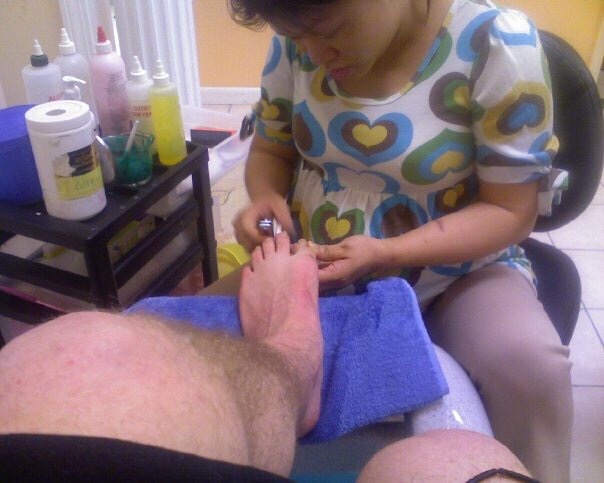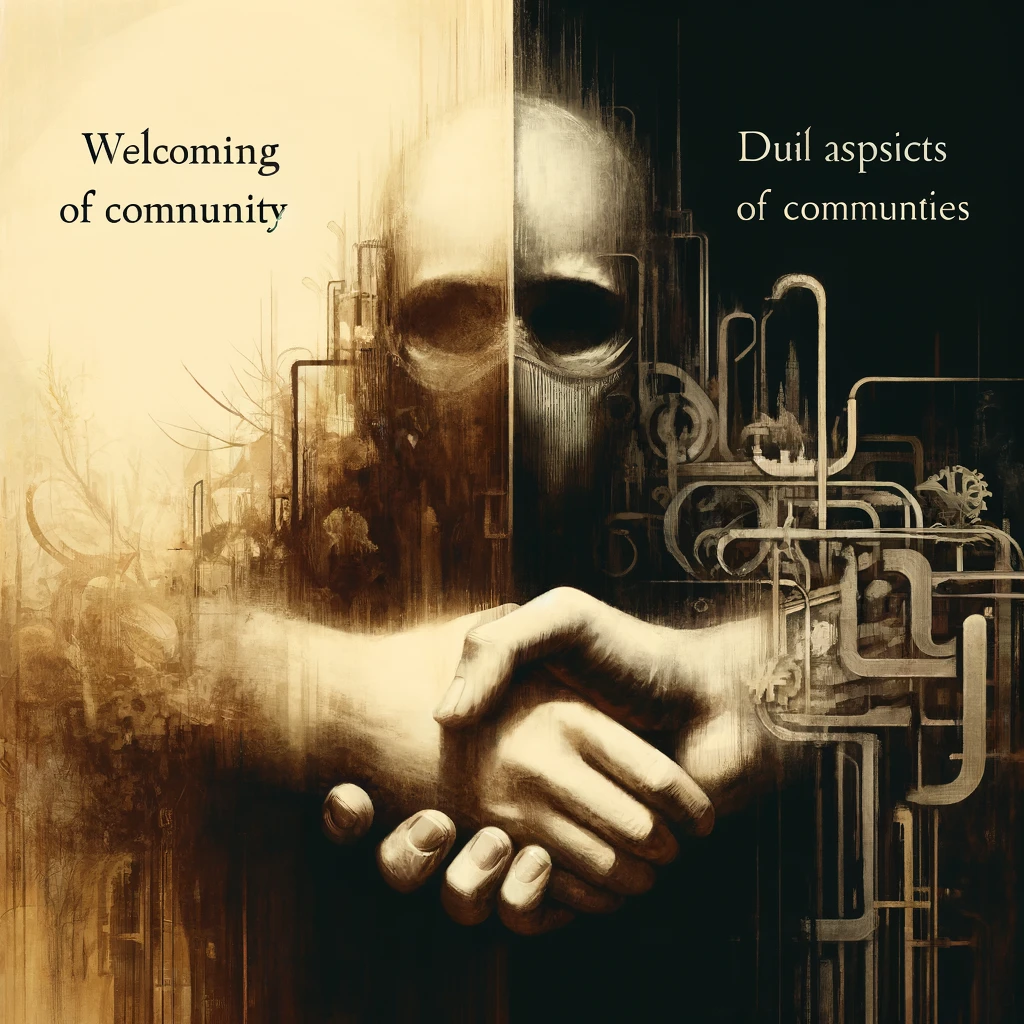Your cart is currently empty!

University on Watch👀: Mental health, Concerns, and Hygiene
Sometimes, school crises erupt on college campus’s unexpectedly. Other times, there is a slow build up of tension before the crescendo. The crescendo can be violence, hate speech, or any number of plausible incidents that can manifest on a college campus. Ten years ago in Binghamton, I was a student in crisis. While I was…

Sometimes, school crises erupt on college campus’s unexpectedly. Other times, there is a slow build up of tension before the crescendo. The crescendo can be violence, hate speech, or any number of plausible incidents that can manifest on a college campus. Ten years ago in Binghamton, I was a student in crisis. While I was only slightly in-tune with the momentum of chaos and cause for concern, I was adamant about reaching someone, some department office on campus, school staff, or even community member and public official i.e the Deputy Mayor of Binghamton to intervene with department affairs and the admissions process to the English graduate school. I fully believed if I found the right party with a vested interest in my well being, I would be admitted to the Graduate program in English.
On a more global level, student in circumstances similar to my own ten years ago are sometimes pitted against power and boxed into a corner when their status as a student becomes compromised and disputed. In many circumstances, student on academic probation, or still in the midst of an going crisis are targets for extreme punitive measures by campus office’s and their academic programs. In many cases, students who are considered problematic are encouraged, similar to an uncomfortable work environment, to leave on their own regard or remain to face extreme sanctions on their freedoms and liberties as a student. So, ten years ago, after a series of emails fired back-and forth between myself, the university, the Office of the Ombudsman, University Affairs, the English department, and god only knows who else, a list (Appendix C) of twelve concerns was drafted by school staff. I was then called into the University Counseling Center for a Mandatory Psychiatric Evaluation to:
“determine if he is safe to continue as a student”, the final statement following the list of concerns and written by the Dean of Harper College
I made several key strategic errors, despite working informally and living with a strategist, my attempt to move forward with the application to the English Masters Program was shock and awe when what was needed was something altogether different. On the morning of Feb. 28th 2008, I without pause emailed the University’s Provost Office and signaled my intentions
“Putting the University on Notice” part of a communication from myself to the University Provost’s Office (Appendix A)
What I had said and what I had meant and what was perceived as my intentions from the email were all very different. What I meant with my language of putting the University on notice was simply I wanted the staff to be aware of my intentions to re-apply to its graduate school and that I was feeling a certain way about the events that had previously unfolded in the English department.
My second strategic error was sending a second email to the Academic Advising Office (Appendix B), asking its personnel who called my parents home expressing concern for my safety, my behavior, and the communication unfolding in the school? The office denied calling my family. To this day, I am not certain who contacted my family expressing concern on my behalf. Whomever they were, or was, I would have liked to meet this person and shake his or her hand to express my gratitude.
The third strategic error was posting flyers throughout the library, and surrounding building, statements from school staff to myself regarding the restrictions placed on my presence and ability to walk into department offices. After a series of mishandled conversations with the University Ombudsman, my fourth strategic error, the negotiated terms of my ongoing presence and status as a student would restrict me from walking into the graduate school’s office in the English department. Specifically, speaking with its secretary, Barbara Walling, and its staff. Not coincidentally, this Barbara was the same person who ultimately picked the up the phone and called the police to have me arrested for violating the terms of the agreement formed the the school’s negotiator, the ombudsman.
The second concern listed by the university was that I have been unkempt and unclean. This may be very well possible. While people carrying a mental illness are cited for their uncleanliness, I was still able to and enjoyed bathing at this point in my downward turn. I was working as a gardener during a particularly hot summer for a doctor in the community to make money given I was cut-off from student loans due to my status as a non-matriculated graduate student. Because I wasn’t driving anymore, due to shortage of gas money, I kept my car parked by my house without gas and was taking the bus to and from school and work. I would imagine that there were days when I had an odor, in addition to nicotine, and the existing sweat from the hot sun. Whatever the reason, it was apparently noticeable enough to raise concern from the school.
So, pictured above are original photos documenting my self-care and hygiene practices when I went to the mall and got a pedicure the day before my psychiatric evaluation. While I am still not certain why my hygiene was so alarming, or, if, I was just alarming on my own, it is not clear given the language and wording of the list from the the university. Later on, my hygiene did suffer, but this was during the final throws of my time in the community before I was hospitalized, when I had difficulty bathing without hearing voices and when I was too catatonic to make it it the bathroom so I soiled my mattress where I lay paralyzed.
As a clinician, I monitor, informally, hygiene. I can say from my own experience, and my experience practicing, sharp degradation in a personal hygiene can indicate someone isn’t feeling his or her best. However, if someone’s hygiene is stable and also noticeably in need of further improvement, as my hygiene was during this episode, I wouldn’t have been too concerned about their mental health status. Baseline poor hygiene is a problem, but not really an indicator of an immediate problem or a sharp turn in their mental status.
The list of concerns cites events that unfolded from the perspective of the university, communications from the school and myself, and the school’s informal and later on, formal assessment of my mental health which is limited and riddled with biases and stigmatized theories on how a person mental health condition would be portrayed if there were in crisis. There are many items on this list that are speculative, and even misrepresentative of what was happening in my life.
Item 4 on the list talks about an office campus altercation I reported in which I raised the attention of school staff because I came back from a weekend in New York City, wearing an eye patch. What had really happened, was that I was robbed, at knife-point, and then car jacked in Patterson New Jersey when I pulled off the highway to get gas for the return trip home. I had rolled down my car window asking directions from people on the street at which point they reached into the car and grabbed my wallet. After getting out of the car to ask for it back, I woke up in the Emergency Room surrounded by family asking questions about how this happened?
In my opinion, this is an approach the school could have used to handle the any inquiries into the problems they observed and ultimately misunderstood during my the tenure of my crisis. An open dialogue and remaining in the asking stance could have made conversations between myself and staff more productive and less adversarial. But instead, inquires and speculations into my health were launched without evidence, or were just blanket reactions and defensive responses to my behavior on campus and with staff.
Like I said before, personal hygiene may or may not indicate a real problem in progress, and yet, there it was on the list clear as day as just another reason for concern to have me evaluated without consent. When people rely upon assumptions, biases, and makes statements instead of asking questions, people in my position will go running for the hills, or in my case, get a pedicure and document it for this blog post ten years after the fact.
 Appendix A
Appendix A
 Appendix B
Appendix B
Max E. Guttman Concerns- Appendix C
It was reported to University Police that Max has been very upset with the English Department for having been turned down for Graduate Study and that he has been coming into the department office at least 20 times since September. He is described as being argumentative with department staff.
He claims to department staff that he is taking five courses from five Universities at this time, however he has not provided documentation of such.
Several faculty members have expressed concern about him, saying he has been unkempt and unclean and that he alarms them.
He came to campus one day with a black eye and reported that he had been involved in an off campus altercation.
Max reported to a staff member that he had attempted suicide within the past year.
He withdrew from school in medical reasons in spring ’07.
He has withdrawn from 3 of 6 classes in which he was enrolled for spring ’08.
On Friday, 2/29, Max inappropriately posted around campus personal communications to him from staff.
Faculty and staff reported concern for his safety.
On Friday, 2/29 it was determined that Max should be assessed to determine if he is safe to continue as a student. Dean Lloyd Howe attempted to notify him of this and when he could not, made contact with Mrs.Guttman out of concern for Max’s welfare.
One response to “University on Watch👀: Mental health, Concerns, and Hygiene”
-
[…] This was a big mistake when my medical information was used to build an argument that I was unfit to continue as a student. My current behavior, given the history also down on paper, signaled to poorly trained staff on […]





Leave a Reply